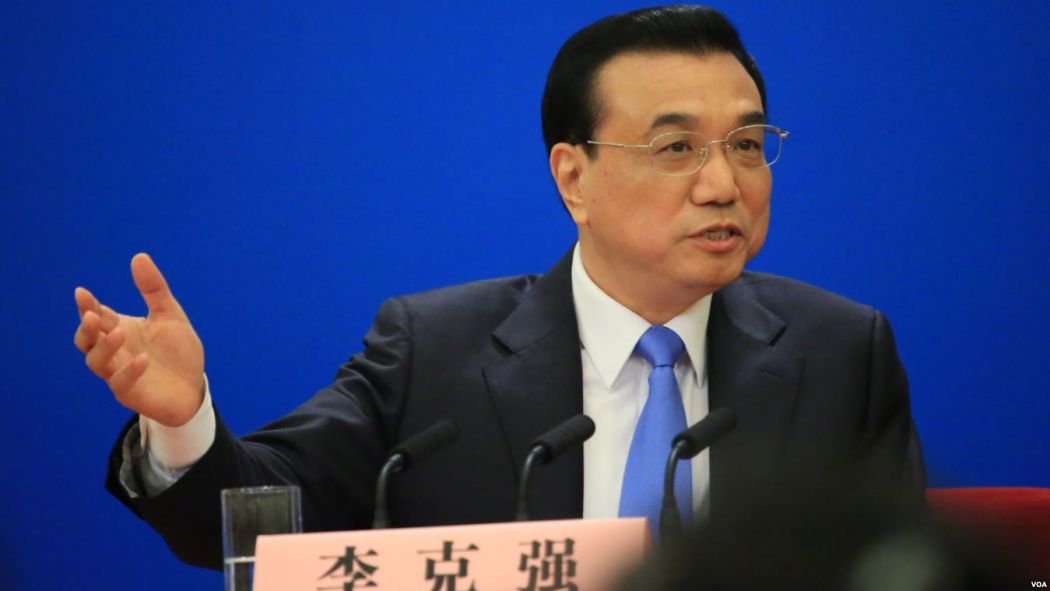23 July, BEIJING:
The world cannot depend on China alone to save it from a Brexit-induced downturn, the country’s premier said Friday, ahead of hosting a meeting of G20 finance ministers.
Government representatives and central bank chiefs from the world’s top 20 economies gather in the southwestern Chinese city of Chengdu this weekend with the impact of Britain’s vote to leave the European Union (EU) high on the agenda.
China’s economic boom of recent decades has seen it become the world’s second-largest economy and a key driver of global growth, with a massive stimulus package Beijing launched in 2008 credited with helping ease the pain of the global financial crisis.

But investors worldwide have worried over its slowing expansion, while Britain’s referendum last month has heightened risks and instability.
“It is impossible to carry all of the burden of the whole world on our shoulders,” said Premier Li Keqiang, after meeting the heads of six global economic organisations, including the World Bank and International Monetary Fund (IMF) in Beijing.
The IMF just days ago predicted that uncertainty created by Britain’s vote to leave the EU, commonly referred to as Brexit, would slow the world economy into next year.
In an update to its April forecast, the IMF lowered its forecasts for global growth this year and next by 0.1 percent, to 3.1 percent and 3.5 percent respectively.
“Failure to achieve clarity about the future relationship between the UK (United Kingdom) and the European Union would add to uncertainty and weigh on confidence,” IMF staff warned in a report for the G20 finance ministers’ meeting issued on Thursday.
“And, if not managed well, China’s transition could further raise volatility around the baseline path of the global economy,” it said.
– Raised pressure –
China is seeking to restructure its economy to make the spending power of its nearly 1.4 billion people a key driver for growth, instead of massive government investment and cheap exports.
But the transition has caused growth to sputter. The Asian giant’s economy expanded at 6.7 percent in the April-June period, the same as the first three months of the year and slowing from 6.9 percent in 2015 — its weakest annual rate in a quarter of a century.
But the IMF has just upped its forecast for Chinese growth this year by 0.1 percent, to 6.6 percent.
Li said the IMF hike put “pressure” on China to “maintain growth and stability”, but he vowed to push economic reforms such as making its yuan currency trade more freely — something Beijing has repeatedly promised, and a key sticking point with the United States and other major trade partners.
“Given the financial fluctuations as a result of Brexit, China will advance market-based reform of its exchange rate,” Li said, adding: “We will not engage in a trade war or currency war.”
Recent weakness in the yuan, which touched a six-year low earlier this week before rebounding, renewed worries that China is allowing the unit to slide to boost its exports.
Beijing also finds itself in a dispute with the EU over whether or not it deserves to be granted market economy status, a designation that would make it much harder for major economies to fight Beijing over alleged unfair trading practices.
In Chengdu, representatives from the world’s biggest industrialised and emerging economies will gather to discuss the impact of Brexit and other challenges to the global economy.
Britain’s new finance minister Philip Hammond will be among those attending, and officials say he will have several meetings with his counterparts on the sidelines of the gathering.
Brexit was “clearly an important event and its consequences on the British, European and world economies need to be assessed precisely – which is not possible today”, French finance minister Michel Sapin told AFP Friday.
It was not the only issue on the agenda, and it should not be exaggerated “inappropriately or irrationally”, he added, but said that negotiations on Britain’s departure needed to start “as soon as possible”.
Given the surprise referendum result and British authorities’ “lack of preparation”, he said London needed time to “reflect on how it can act”.
“But that cannot be an indefinite period, uncertainty is damaging, including economically, and particularly for Britain itself.” AFP





